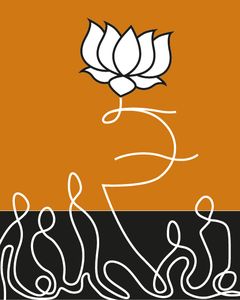Claims and counterclaims on the economic impact of demonetisation have been vigorously made this past week by the defenders and the critics of this disruptive policy intervention. Every economist has an opinion, and we all know that the sudden withdrawal of a substantial sum of cash from the economy, followed by its all too gradual replacement, was a huge shock to the system. It is also easy to say that such a shock would temporarily dislocate economic activity and have a negative impact on national income growth, overall economic activity and related economic indicators.
Everyone is agreed that demonetisation has a negative impact on the level of economic activity; differences arise when it comes to estimating the magnitude and duration of that impact. The defenders of demonetisation have argued that the government weighed the negative consequences against a range of positive outcomes, and that two years down the road, the latter are there to see.
Surely, an intelligent and experienced political leader like Prime Minister Narendra Modi would have known this much about the consequences of that fateful decision he took on November 8, 2016. Would the prime minister have undertaken a cost-benefit analysis of demonetisation before taking the decision? He may well have. However, the problem might have been that the economists in government and the Central bank were only counting the economic costs and benefits while the prime minister was weighing the economic costs against political benefits.
Modi’s demonetisation decision was an essentially political one. Within his first two years in office, he had two major political setbacks—first in Delhi and second in Bihar. Arvind Kejriwal and Lalu Prasad were trying to run away with the common man that the ‘chaiwala’ of 2014 had assiduously cultivated. Rahul Gandhi seized the moment with his “suit-boot ki sarkar” jibe. Modi had to do something dramatic to show he was with the common man, and was willing to hurt the moneyed class. Ergo, demonetisation.
Did the prime minister reap the political dividend he was after? Consider the fact that in every assembly election between November 2016 and November 2018, with the sole exception of Punjab, the BJP did well. Uttar Pradesh was a sweep. In Karnataka, the BJP narrowly missed forming a government. For its part, the Congress has been trying hard, but in vain, to resurrect the ‘suit-boot’ image by suggesting that in the Rafale decision, Modi was once again helping well-heeled friends.
While economists have written copiously on the costs and benefits of demonetisation, it is truly surprising that political scientists and sociologists have not published any meaningful research on its political impact. To me, the most interesting question remains why millions of Indians, even the normally impatient urban ones, were willing to stand patiently in long queues to collect their own cash from their own accounts. It is not difficult to get a group of Indians worked up enough to start an agitation, take out processions in protest and even burn buses. How come the opposition parties failed to mobilise that kind of protest? There were sporadic outbursts of impatience and anger, but they did not light a nationwide fire of protest. Did Modi gauge public mood better than his opponents?
The disruptive impact of demonetisation has angered many groups, especially small businesses operating largely with cash, and the political opposition is now mobilising that anger.
Even so, the sociological question remains. Why were the normally impatient Indians so patient when put through such hardship?
Baru is an economist and a writer. He was adviser to former prime minister Manmohan Singh.


